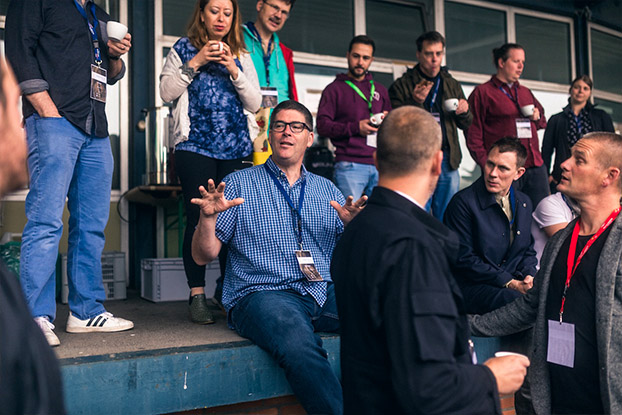According to Giacomo Negro, associate professor of organization & management, who also holds a Goizueta Term Chair and a courtesy appointment as associate professor of sociology, inquisitiveness is at the heart of what drives his innovative research. While many academics might pick one industry on which to laser focus their studies, Negro develops an understanding of the sociological and economic context he studies but seeks some more general links that may be common across a wider variety of settings, whether it’s wine producers, payday lenders, or actors and actresses in the film industry.
Negro’s research is situated in the area of sociology of markets and organizations. A topic that he has long been interested in is the role that perceptions and categories play in markets. According to Negro, categories act as boundaries. The way we categorize and even label products, for instance, can have tremendous influence on the appeal of these products for audiences, which then influence the strategies and success of firms.
In his research paper titled “Category Signaling and Reputation,” Negro and coauthors Michael T. Hannan (Stanford U) and Magali Fassiotto (Stanford U) look at the dynamics involved in how producers, professional critics, and consumers interact by means of categories when it comes to wines produced using organic and biodynamic techniques. The researchers argue that organic and biodynamic farming practices eliminate the use of chemicals and require higher capability and commitment (and higher production costs) than conventional winemaking. Membership in either category therefore qualifies as a market signal of quality. At the same time, biodynamic is also associated with additional practices that are found to have no effect on grapes and wine but are perceived as very unique. Analyzing ratings and prices of wines made using these techniques, the researchers found that biodynamic wines receive higher praise and higher prices than organic wines, evidence that perceptions of more distinctive identities translate into market advantage.
Categories can also carry a negative valence and even stigmatize, such as payday lenders within the banking sector. This stigma can have significant implications for the players operating within the segment. In the research paper titled “Resource Partitioning and the Organizational Dynamics of Fringe Banking,” coauthored with Goizueta Chair and professor of organization & management Anand Swaminathan and Fabiana Visentin (Ecole Polytechnique Fédérale de Lausanne), the trio theorized that reputational risk might keep certain businesses away from engaging in practices more commonly associated with a lower-end market.
For instance, big banks might avoid providing the services synonymous with payday lending. However, the expansion of overdraft programs by large banking institutions, which some argue mirror the products of payday lenders, seems to indicate willingness by the banks to span boundaries and encroach upon this market niche. These strategies of boundary spanning bring legitimate categories to blend with other categories that carry discredit. Ultimately, the strategy can result in “the legitimization of the market fringe and end up increasing the viability of payday lenders,” they write.
Negro extends his sweeping research by taking an in-depth look at the 1950s US House hearings investigating the Hollywood film industry for its links to the Communist Party. While the research would seem unrelated to his prior work, the analysis centers on how negative categories applied to professions affect markets even indirectly. In this case, Negro studied how likely the actors and actresses called to testify and describe their Communist party membership, or suspected affiliation, were to find jobs in the industry. These artists were “blacklisted” in Hollywood. Negro found that while those blacklisted had the most difficulty in finding work, artists who had previously worked with someone who later became suspected of having Communist ties were also less likely to find a subsequent job simply because of the association.
The expansiveness of his research certainly helps guide his approach to advising Goizueta doctoral candidates. “I like to give the students quite a bit of room to work,” he says. “I expect them to come to me with an intuition or idea, and my role is to help them shape that idea and push them to go further.” It’s not about imposing his beliefs, he argues, and it’s certainly not about handholding. The emphasis for Negro is to encourage their curiosity. “I like PhD students to have their own sensibility and personality as individual researchers,” he concludes.
– Myra Thomas











